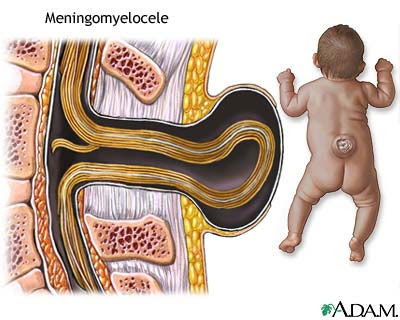Folic Acid Intake during Pregnancy Prevents Split Spine in Children
European health experts urge their colleagues from the food industry to launch a large-scale experiment of adding to bread folic acid, one of the most important B vitamins. According to physicians, such a measure would help reduce the number of babies born with spina bifida – split spine.

This unpleasant malformation is often associated with the defects of the spinal cord and occurs in one to two cases per 1,000 births. Split spine (malformation of the neural tube) occurs in the fetus in the early stages of pregnancy, during its first weeks, and it was previously considered an undisputed basis for medical abortion. The children born with this defect fall behind in their development and poorly control urination and defecation.
In their recommendations, British doctors are guided by the positive example of their South American colleagues. In Chile, the frequency of births of babies with congenital malformations of the neural tube was reduced by half after the Ministry of Health had made it obligatory to add folic acid and its salts – folates – into the flour for baking bread.
The link between the pregnancy diet and the risk of spinal defects in newborns was first established 50 years ago. Then, the researchers noticed that spina bifida often occurred in babies conceived in the winter months when the expectant mothers lacked fresh fruits and vegetables – the best sources of folic acid.
The representative of the UK Department of Health made a statement to the media saying that most people must obtain folates with food. Only such a diet can be considered balanced. The doctors strongly advise the women, who intend to get pregnant, to take not less than 400 mg of folic acid a day – both from the food, and in the form of pharmaceutical medications: synthetic folic acid is absorbed by the body very well.
